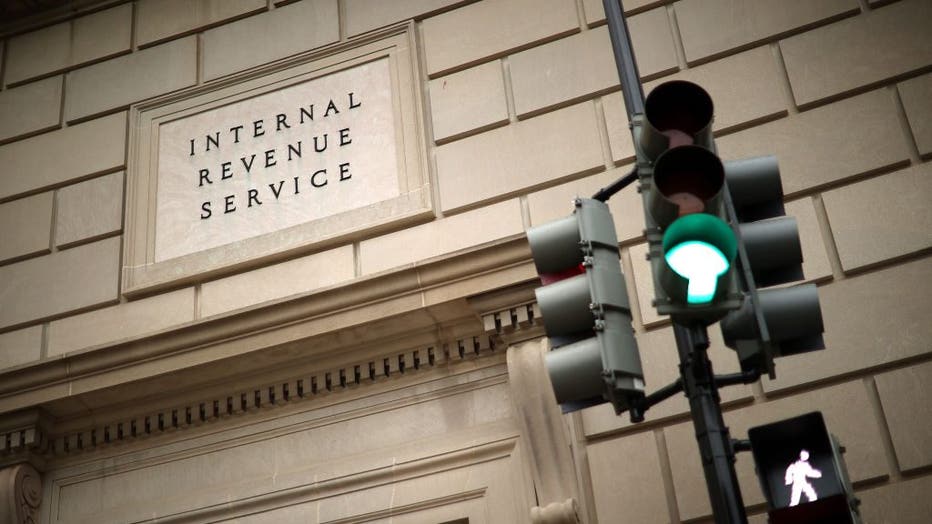Fourth child tax credit payment goes out this week: What parents need to know
Child tax credit payments begin: What you need to know
The Internal Revenue Service will begin to issue payments to parents under President Joe Biden's expansion of the child care tax credit issued to all Americans with minor children. The payments, which begin July 15, are expected to include at least 39 million parents and 65 million children. The program was approved by Congress as part of the most recent stimulus package related to the COVID-19 pandemic.
Millions of parents across the U.S. can expect to receive some extra cash this week, when the IRS will start distributing the fourth round of payments from the expanded child tax credit.
The IRS said it expects to deliver the monthly installment via direct deposit for most families beginning on Oct. 15, part of a program authorized as part of the stimulus bill that Democrats passed without any Republican votes in March.
The majority of the payments, worth up to $300 per child, will be issued by direct deposit.

The Internal Revenue Service headquarters building appeared to be mostly empty April 27, 2020, in the Federal Triangle section of Washington, DC. (Photo by Chip Somodevilla/Getty Images)
Experts say the overhaul of the 24-year-old child tax credit could have significant implications for millions of families, particularly low-income households: More than 4 million children could be lifted out of poverty, according to one analysis conducted by the Center on Budget and Policy Priorities at Columbia University.
Here's everything parents need to know about the payments:
How much money can families expect to receive?
Low- and middle-income parents can expect to receive $3,000 for every child ages 6 to 17 and $3,600 for every child under age 6 under the expanded child tax credit.
The payments are income-based and begin to phase out for individuals earning more than $75,000 and married couples earning more than $150,000. The tax credit is tapered by $50 for every $1,000 a family makes over the income thresholds.
If families earn too much to qualify for the sweetened tax credits, they can still receive the $2,000 credit for their children if their income level is below $200,000 for individuals and $400,000 for married couples.
There’s no limit on the number of children who can receive the credit per family.
You can use this free calculator from Omni to see how much money you can expect to receive.
How are the payments distributed?
The IRS is distributing half of the credit as an advance on 2021 taxes in six monthly installments, worth $250 to $300 per child. The remainder will come when parents file their 2021 tax returns next April.
If families would prefer to receive a lump-sum payment when they file their tax return in 2022, they can use this new tool unveiled by the IRS in June.
Parents who have provided the IRS with their bank account information in order to receive a tax refund will receive the payment via direct deposit. Otherwise, parents can expect to receive the money as a paper check.
Families also can check the Child Tax Credit Update Portal to see how the money will arrive. They can also sign up for direct deposit or change their bank account through the portal.
When are the official payment dates?
The IRS began paying out the credit on July 15. From there, the agency has delivered the monthly payments on the 15th of each month through December 2021.
There are two more payment dates this year:
- Nov. 15
- Dec. 15
The remaining half will be a credit toward next year's taxes. Any money left after covering taxes will be paid directly to families.
How do parents opt out of the child tax credit?
Some families may want to stop the monthly payments, some financial experts say, because the enhanced credit is based on tax returns from 2019 and 2020. That means families that are earning more money in 2021 should be aware that if they are overpaid by the IRS, they will have to return that money next April during tax season.
To stop the advanced payments, families must use drop out using the IRS's new online portal three days before the first Thursday of the next month, according to the agency.
The deadline to opt out of the fourth round of payments has already passed, but families can still drop out of future payments using the new online portal from the IRS. The opt-out date for the November payment is Nov. 1, and the opt-out date for the December payment is Nov. 29.
For parents who are married and filing jointly, both spouses must opt out of the payments. If families miss the deadline to unenroll, they will receive the monthly payment until the IRS processes their request.
Can parents re-enroll if they opt out of the payments?
The IRS has cautioned that if parents choose to not get the monthly payments, they are not able to re-enroll in the program.
"You cannot re-enroll at this time," the IRS said at the beginning of October. "Unenrollment is a one-time action."
Will the expanded child tax credit last beyond 2021?
The boosted tax credit is poised to end in 2021, although President Biden and Democratic lawmakers are pushing to extend it for at least five years as part of a sweeping spending package that would dramatically expand the social safety net.
It's unclear whether they will be successful.
Is it too late to sign up for the child tax credit payments?
No. Families who have not filed a 2020 income tax return – including those who are not normally required to do so because their income is too low – are still eligible to sign up for the payments, the IRS said.
Most low-income families can get these monthly payments.
Get updates on this story from foxbusiness.com.

